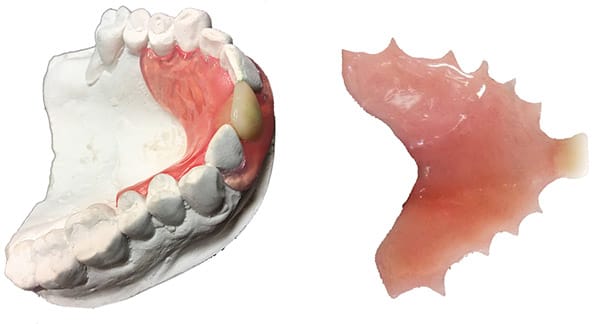Solutions for Replacing Single Tooth in Brooklyn NY
Unfortunately, tooth loss is common, and many people will lose one or two teeth because of trauma or dental diseases such as advanced tooth decay or gum disease. When you do lose a tooth, it is important to consider how best to replace it as soon as you can. Older adults, in particular, can benefit from implants for seniors with tooth loss, providing long-term stability and supporting healthy jawbone preservation.
Can a Missing Tooth Cause Problems?
Losing even a single tooth can make it trickier to eat comfortably, and it can hurt your oral health generally, as your teeth are meant to function together. Without a complete set, your remaining teeth are more likely to drift out of place, affecting their overall stability and your bite.
Unwanted tooth movements can cause unsightly spaces between teeth, and these spaces can also act as food traps, increasing the risk of tooth decay and gum disease. When you lose a tooth in your smile line, you will almost certainly want to get it replaced as quickly as possible.
Several solutions can remedy missing tooth problems, and which are:
- Dental flipper
- Three-unit bridge
- Maryland bridge
- Teeth in an hour
Dental Flipper
A flipper is a one-tooth denture that has a plate made from gum-colored acrylic and which supports a single denture tooth.
Although cost-effective and quick to make, a flipper is not very stable or comfortable and doesn’t provide any significant biting or chewing strength.
This restoration is typically only used as a temporary solution, for example, while you decide how to restore your missing tooth more permanently. A flipper will maintain the space and restore your appearance cosmetically during this time.

Three-Unit Bridge
A three-unit (three-tooth) bridge is a more permanent option for replacing a missing tooth. The replacement tooth is called a pontic and is attached to dental crowns that fit over the teeth adjacent to the gap. It is necessary to substantially reshape these teeth to ensure the crowns do not look or feel too bulky and unnatural.
A bridge is a good solution if the adjacent teeth are decayed or severely infected and require dental crowns to protect them and can be a cost-effective and non-invasive treatment that is completed in a couple of weeks or so.
However, when the adjacent teeth are healthy, strong, and cosmetically appealing, it is undesirable to reshape these teeth. Reshaping and crowning healthy teeth increase the risk of infection and decay in these teeth later, as crowns can start to leak as they age. Initially, a three-unit bridge can seem a more cost-effective solution compared with a dental implant, but in the longer term, this solution can be costlier. All restorations need replacing as they age. When this happens, the cost of replacing a three-unit bridge is higher than replacing a single implant crown.

Maryland Bridge
A Maryland bridge uses ‘wings’ instead of crowns to support the replacement tooth or pontic. The wings are bonded onto the inner surfaces of the teeth adjacent to the gap and are virtually invisible. Sometimes the wings have holes to increase retention, and this is called a Rochette bridge.
A dental implant is a more permanent solution for single tooth loss, and nowadays, treatment is often quite fast to complete.
While less invasive than a standard three-unit bridge, a Maryland bridge is quite fragile and is best used to restore front teeth as it cannot withstand any substantial pressure created when chewing food. Sometimes a Maryland bridge will ‘pop’ off the supporting teeth and must be rebounded by the dentist.
Teeth in an Hour
A single dental implant provides the strongest and most natural-looking solution. Whereas a pontic rests on the gums, an implant tooth emerges from them, just like a real tooth. Single implants are easy to care for and can be brushed and flossed normally, and do not require any existing teeth to be modified in any way. Instead, they protect and preserve natural teeth, preventing them from shifting position and sharing the forces created while eating.
The latest implant techniques mean that it is frequently possible to place and restore a dental implant on the same day, so you need not be without a tooth for any length of time.
Sometimes it is even possible to remove the failing tooth and to insert and restore the implant all during the same appointment. The replacement tooth fitted during teeth in an hour is most likely temporary, as the implant post needs time to fuse with the jawbone during osseointegration and must remain undisturbed during this time. Consequently, the temporary tooth is fabricated purely for cosmetic purposes as it won’t contact your opposing tooth, and you can’t use it for biting and chewing. It is replaced with your permanent tooth after osseointegration is complete.
Teeth in an hour is an advanced and long-term solution for tooth loss.
You will need diagnostic tests beforehand, and the entire treatment is planned behind the scenes using computer guided surgery. When you visit LuxDen Dental Center for the surgical treatment, your temporary tooth is already ready, and your implant is inserted in less than an hour.
